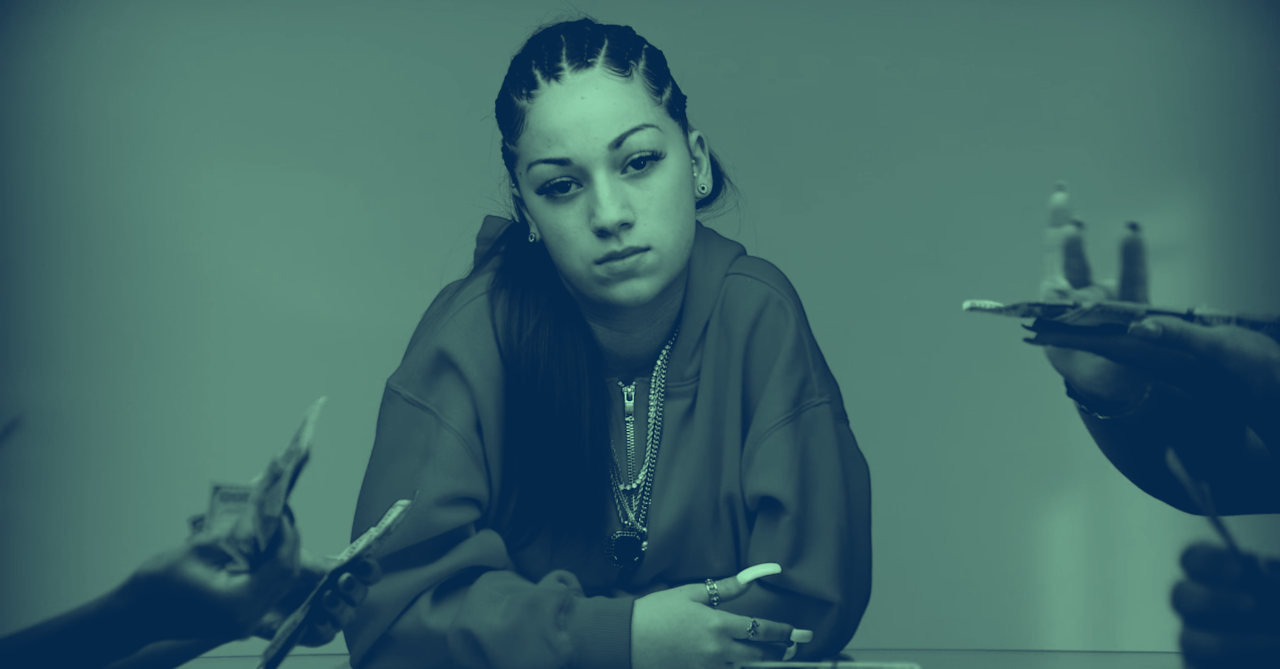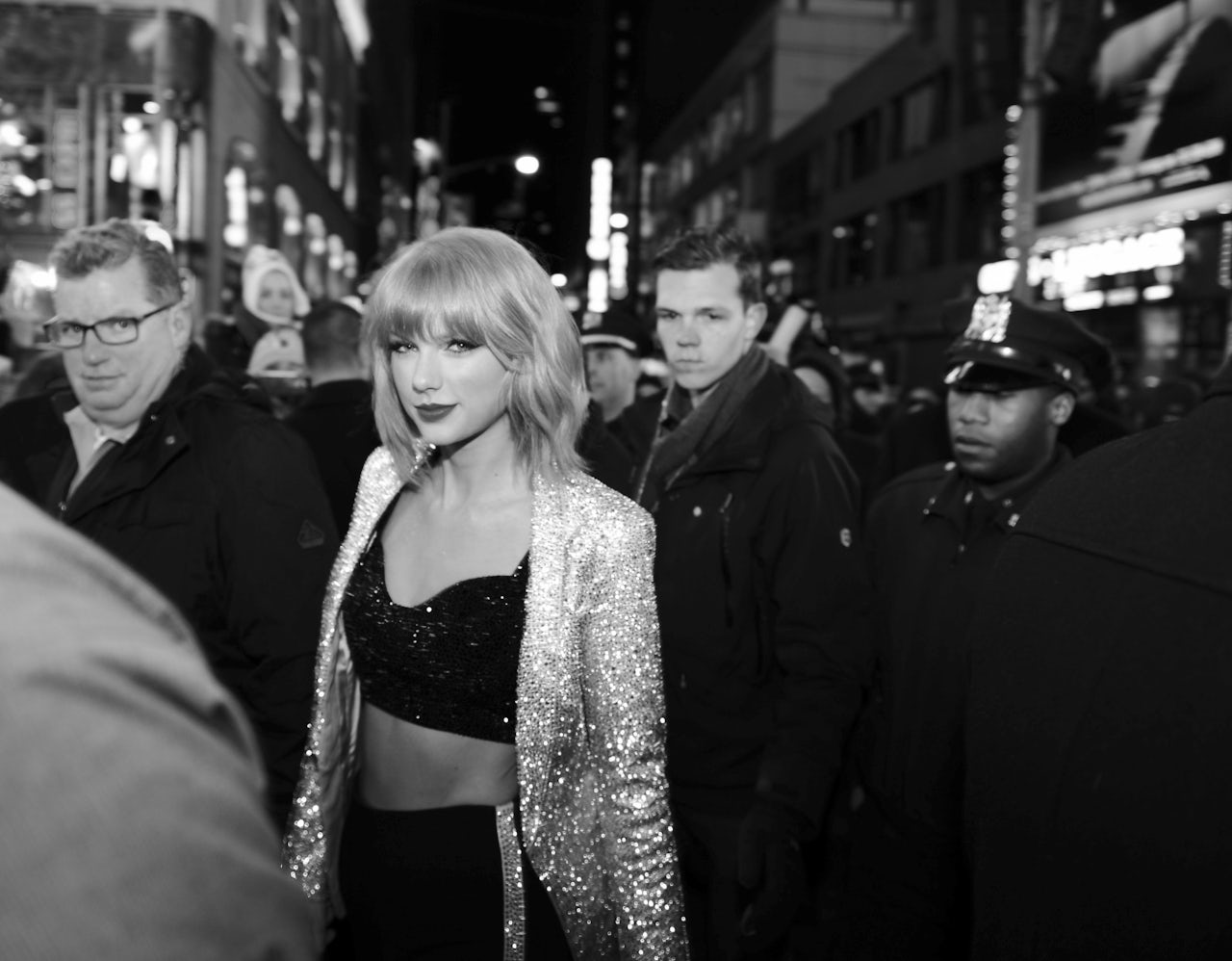Very Intriguing Person
is a series about people who fascinate us, for better or worse.
Daytime talk shows were my secret snow day pastime, when my mother was at work. Like many other black mothers in the ‘90s, she approved of Oprah, but she didn’t want me watching salacious choices like Maury and peers like the The Jenny Jones Show, The Montel Williams Show, and Ricki Lake. But whenever the circumstances allowed, that’s what I watched. (Sorry, mom.) The jeering, the fights, the litany of beeps censoring forbidden words — it made me feel bad in a good way, and I took particular pleasure in those episodes that featured “very bad kids,” in which parents explain their struggles with a child exhibiting defiant behavior, and appeal to a television host for help. The behavioral problems were put on trial as the kids performed their badness on stage; the host would emerge as a savior, offering support in the form of a trip to a reform camp or some other “rehabilitative” exercise.
It wasn’t that deep to me when I was 8. All I knew was that I could relish in the drama happening on stage, and comfort myself with the knowledge that though I did my own bad things, at least I wasn’t as bad as they were. Eventually the rise of reality TV sated my thirst for drama and, being older, “bad kids” episodes became less thrilling. I left my obsession with daytime talk shows behind. By the time Danielle Bregoli came to public attention after her infamous appearance on Dr. Phil, I was uninterested. Here was yet another troubled girl being exploited for ratings on a daytime television show. I couldn’t quite wrap my head around the viral appeal of "Catch Me Outside Girl," as she was dubbed — she was just another tragic white girl to be fussed over by a blandly intrigued audience. This one too became an object of ridicule, with Dr. Phil taking the lead in mocking the “blaccent” on which much of her notoriety rested.
My early ambivalence about Bregoli was not felt by the public. Her unintended catchphrase, “Cash me ousside, how bow dah” was appropriated by everyone from Walmart to Bitmoji. Online, screenshots of her appearance on Dr. Phil were memed to exhaustion. In a matter of days, Bregoli was on her way to becoming a bona fide internet one-hit wonder, joining the likes of Damn Daniel and Tay Zonday of “Chocolate Rain” fame in their brief yet sweeping moments of cultural relevance.
Months in, she finally caught my interest. In September, Bregoli premiered the video for her new single “Hi Bich” — a song that, to my surprise, I enjoyed. The song is a cheeky anthem for flaunting one’s prosperity in front of one’s haters, and the video a dramatic portrayal of Bregoli’s public persecution. In it, Bregoli raps in a courtroom as her detractors testify against her, her fans rowdily showing their support from the audience. Her unrepentant verses eventually land her in the electric chair, her execution transforming her into a virginal Madonna figure. The concept is a sly riff on what Bregoli experienced at the hands of Dr. Phil, but unlike the talk show, watching her in “Hi Bich” was actually fun. The pounding beat, the unapologetically irreverent lyrics, Bregoli’s indifferent delivery of the surprisingly catchy chorus — what “Hi Bich” lacked in innovation, it made up for in execution. Despite much skepticism directed her way, Bregoli had a hit. The song debuted at 68 on the Billboard Hot 100 and as of this writing the accompanying video currently has over 56 million views.
What I want for talented yet unseen black girls isn’t what Bregoli has.
As confident and self-assured as she attempts to present herself, it’s easy to hear Bregoli’s adolescence in her music. It’s in the way her voice squeaks when she says “Why would I care what you thots would say?” in her latest single “I Got It” or “I do not sniff it I roll it” in “Hi Bich." The bold disses that are staples of any great, confidence-boosting rap song (“You look like somebody smashed your face”) are delivered with a schoolyard glee. So far, Bregoli’s songs belong to that category that I most often turn to when I need a bit of light-hearted self-hype. Her songs are in the tradition of those unabashed “bad bitch” anthems that inspire confidence even as they may very well be directed at the listener.
The difference is they’re coming from the mouth of someone half my age. No doubt Bregoli’s first single “These Heaux” is talking about you and me. “These hoes be lacking, see me in the back, they talk all this shit, but don't say it in person,” she says with the air of a typically embattled teenager. I can remember feeling like the world was against me when I was around her age, but I had never had the experience of having an audience full of adults laughing and jeering at me as my dirty laundry was aired to the world. “I ain’t nothing like these hoes, don’t compare me to no one,” she sings in the chorus, a cliche sentiment that nonetheless comes off like the bratty, declarative thing a teen would say to prove they weren’t just another whiny kid.
Much as I knew I had seen Bregoli before in the decades-worth of young girls paraded across daytime television for gasps and laughs, I recognized her too in the “bad girl” persona music labels are seasoned in leveraging for profit. I recognized this white Jordans and ripped jeans-wearing ponytailed girl being put on the stand and sentenced to execution in the “Hi Bich” music video as the sister to the girls I had known through the television growing up. Britney Spears, who became a superstar at age 16 after dancing in a sexualized schoolgirl uniform in the music video for “Hit Me Baby One More Time." Christina Aguilera, whom I first came to know as a teenage girl rolling in the sand in the video for her hit “Genie in a Bottle." I even recognized in Bregoli some of Paris Hilton, who in 2003, attempted to capitalize on her persona as an airheaded rich girl in her Fox reality show The Simple Life. When a tape of her having sex was distributed to the public without her consent ahead of the show’s premiere, Hilton found herself capitalizing off of her new status as a reprehensible “bad girl” as well.
And I recognized in Bregoli, too, the figure of those white girls in my hometown who, decked out in hoop earrings, Timberlands, and acrylic nails, relished claiming and believing they were “blacker” than me, trying on markers of authenticity and “realness” in the search for identity all teenagers go through. From her personal style to her flow and rhymes, everything about Bhad Bhabie — no matter how authentic to her lived experience it may be — is a pastiche of elements from black culture. Looking at Bregoli in screenshots from her time on the Dr. Phil stage, I can’t help but think about all the black girls who have been paraded across those stages for decades, but never rewarded with celebrity camaraderie or a record deal. I think of the young black women in R. Kelly’s house somewhere, whose talent was the bait at the end of a hook promising wealth and fame. The injustice of how young white girls are treated compared to young black girls in this country haunts me from the back of my mind — but what I want for talented yet unseen black girls isn’t what Bregoli has.
Bregoli is the evolutionary model of a time-honored trend of the entertainment industry: young girls whose sexuality and controversy can be monetized. And in a time where blackness without black people is more profitable than ever, Bregoli represents a cultural marketing ideal: a rap-facing internet celebrity whose beginnings as a talk show guest are a testament to her authenticity, not a count against her. Even as Bregoli remains a 14-year-old object of public criticism, her music continues winning fans and finding spots on the Billboard charts.
“I don’t know what made all y’all haters,” she raps in “Hi Bich”. Why would she? Our society’s simultaneous spotlighting of and finger wagging at defiant young girls began long before Bregoli was born in 2003. There’s a voice that echoes across this country attempting to whisper in the ears of girls and women — but especially black girls and women — that by virtue of who we are, we are bad. Bregoli has a freedom wholly denied to black girls, a reality that existed before her and will continue long after. But as Bregoli is working through this voice in public, running with her badness instead of coyly suggesting it as Spears and Aguileira's promoters did, I can't help but think of myself at 14. The memory of my insecurity then is what allows me to be sympathetic to her now. In the end, Bhad Bhabie has a weapon I never had, the power to forcefully appear to not care. God help the haters who dare to stand in her way.
Read the last installment of Very Intriguing Person, on sex columnist Dan Savage.

